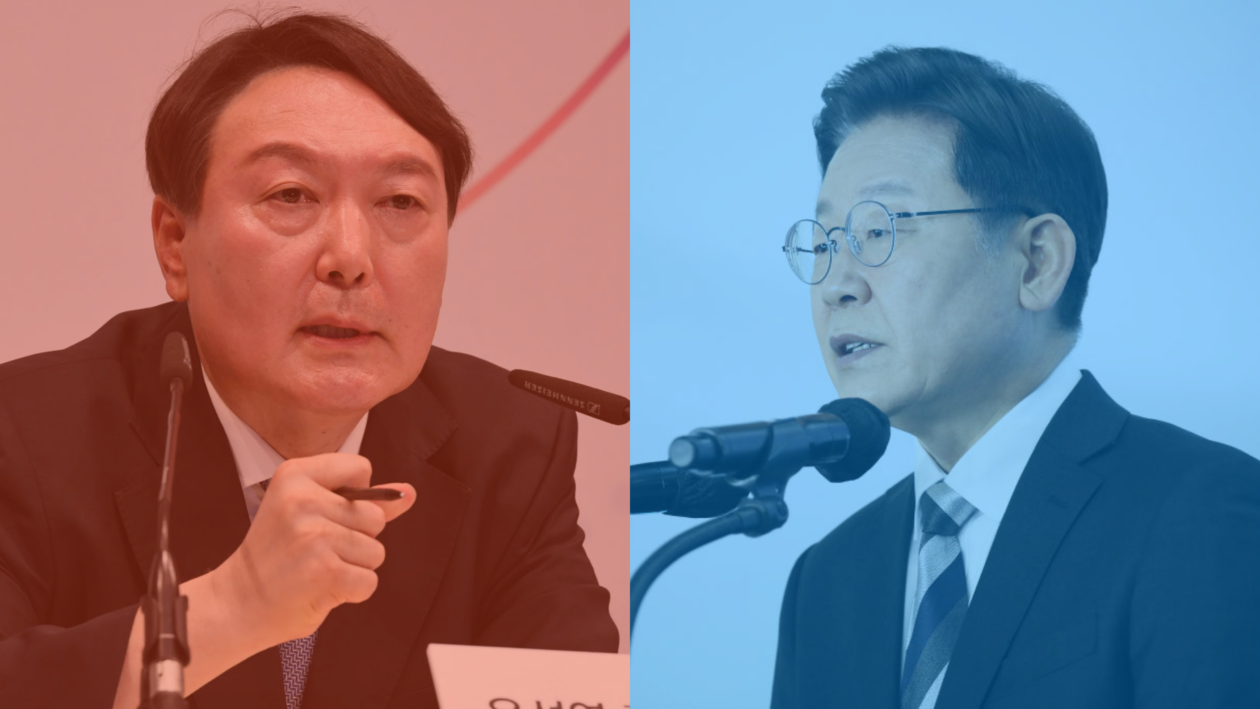The South Korean presidential election is less than 50 days away and the two leading candidates — Democratic Party of Korea’s Lee Jae-myung and main opposition People Power Party’s Yoon Suk-yeol— are aiming to win the contest with the support of crypto voters.
The two are eagerly reaching out to cryptocurrency investors and professionals with campaign promises to improve the regulatory environment for the crypto industry.
While details differ, the respective crypto platforms of Yoon and Lee each include the institutionalization of virtual assets and overturning the ban on initial coin offerings (ICOs).
Behind the elevation of crypto as a major election issue is the candidates’ need to win over voters in their 20s and 30s. “The 40s, 50s and 60s have already picked one candidate and they’re not changing,” said Kim Hyoung-joong, president of the Korea Society of Fintech Blockchain, in an interview with Forkast. “[Younger voters] are more fluid.” Both candidates have also raised campaign issues involving gender rights and unemployment.
“There is an estimate of 8.4 million people that hold cryptocurrencies in Korea, and more than 60% of them are in their 20s and 30s,” Kim said. The younger generation, in addition to having bigger stakes in virtual assets, have been critical of the current administration’s anti-crypto stance. In April 2021, South Korea’s top financial regulator panned crypto investors as pure speculators, which sparked a backlash.
Democratic candidate Lee pledged to institutionalize virtual assets, prepare an objective standard for the listing of cryptocurrencies, and build a more transparent system for public disclosure of information. He also promised stronger investor protections and monitoring to prevent unfair trade practices.
Opposition party contender Yoon has plans for a new government institution tentatively named the Digital Industry Promotion Agency to guide the booming crypto and non-fungible token (NFT) industry. Along with the agency, Yoon says he will also enact a legal framework for digital assets that would recover illegal profits from unfair trade practices.
Yoo Hyun-jin, a 32-year-old Seoul-based crypto investor, told Forkast: “A national effort to establish a market order is worth welcoming.”
On Wednesday, both candidates rolled out plans to bring back ICOs — a process through which a project sells its new crypto to raise capital. ICOs were banned in 2017 by the Financial Services Commission, which noted that a large portion of ICOs were not transparent, and even deliberately deceitful. New York-based Satis Group reported in 2018 that about 80% of all ICOs were scams.
Both Lee and Yoon acknowledged the risks and offered solutions. Lee says he will allow ICOs only after preparing sufficient investor safety measures. Yoon offers licensed and bank-backed crypto exchanges as middlemen, or in other words, converts ICOs to IEOs (initial exchange offerings).
The ICO campaign promises are more a miss than a hit, however, said Kim, the fintech blockchain society president. “Right now in Korea, there isn’t really a reason to do ICOs anymore. These days, by selling one NFT, you can collect more money than ICOs,” said Kim.
Kim believes the candidates can take their crypto campaigns a step further. He insisted a new government agency for the blockchain industry should be on a ministerial level so that it would not be swayed by existing authorities, and proposed a chief secretary at the presidential Blue House to oversee the industry.
According to the latest public poll by South Korean national broadcaster KBS, Lee Jae-myung is leading the presidential race with 34.5%, while Yoon Suk-yeol follows closely behind with 33%.





